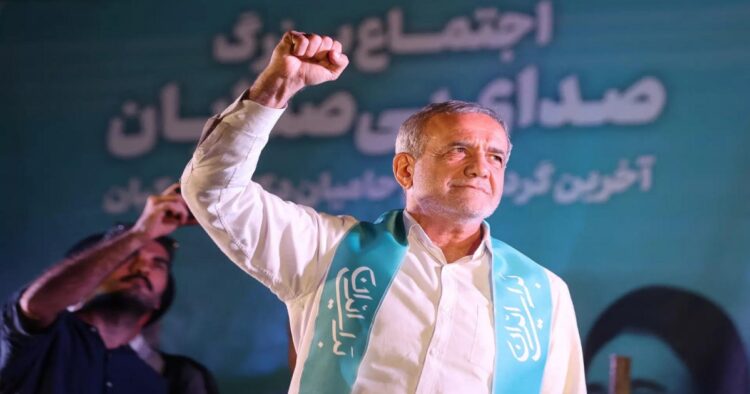Iran’s newly elected president, Masoud Pezeshkian, has outlined his administration’s foreign policy priorities, promising to establish “balance in relations with all countries” while safeguarding national interests. In a recent address published in Iran’s newspaper, Pezeshkian emphasized Iran’s stance against yielding to external pressure, particularly from the United States.
Pezeshkian, a 69-year-old heart surgeon and former lawmaker, secured victory in the runoff election held on July 5, succeeding President Ebrahim Raisi, who tragically died in a helicopter crash earlier this year. He expressed commitment to fulfilling his campaign promises, focusing on strengthening ties with neighboring countries and advocating for diplomatic efforts to achieve peace, including supporting Arab nations in promoting a lasting cease-fire in Gaza.
The new president highlighted Iran’s longstanding alliances with Russia and China, describing them as crucial strategic partners who have consistently supported Iran during challenging times. He pledged to expand cooperation with Moscow and Beijing while also endorsing initiatives aimed at resolving conflicts such as the ongoing war between Russia and Ukraine.
Addressing Iran’s relationship with European nations, Pezeshkian expressed readiness for constructive dialogue based on mutual respect, despite past fluctuations in relations. He criticized Western powers for their handling of the Joint Comprehensive Plan of Action (JCPOA), from which the U.S. unilaterally withdrew in 2018, leading to severe economic sanctions against Iran.
Pezeshkian underscored Iran’s commitment to its defense doctrine, asserting that it does not include nuclear weapons while criticizing the U.S. for escalating tensions through actions such as the assassination of General Qassem Soleimani in 2020. He lamented the economic impact of sanctions on Iran, which he claimed amounted to hundreds of billions of dollars in losses and exacerbated hardships during the Covid-19 pandemic.
Locally, Pezeshkian faces challenges including economic instability, high inflation, and unemployment, which he aims to address while navigating an administration still influenced by hard-line factions. He has aligned himself with moderate and reformist figures, appointing former Foreign Minister Mohammad Javad Zarif to lead the Strategic Council for the transition period, tasked with overseeing cabinet appointments and ensuring a smooth transfer of leadership.
As Iran’s new president assumes office, both domestic expectations and international scrutiny will shape his tenure, with hopes pinned on his ability to deliver promised reforms amidst complex geopolitical dynamics.

















Comments